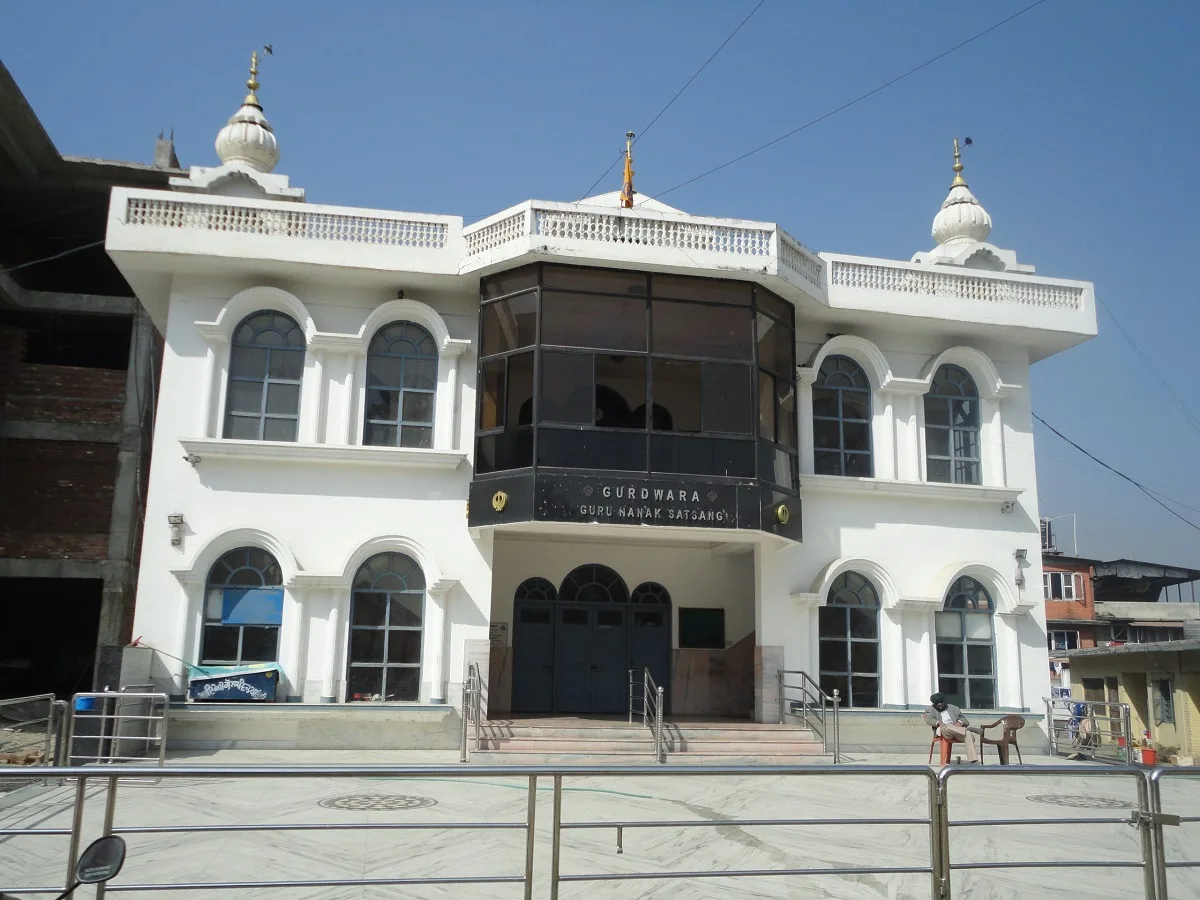By Tridivesh Singh Maini
Often when we talk of the Sikh diaspora our discussions are focused on Sikhs settled in the Anglosphere (total number of Sikhs worldwide is estimated at over 25 million, with the bulk of them settled in Panjab, India). While this is understandable, given their remarkable achievements in different walks of life, we often overlook the fact that there are small but vibrant Sikh communities even in India’s neighbourhood — including Nepal. While the total number of Sikhs in Nepal is estimated at a few thousand, they have made a mark for themselves in different spheres and contributed to the progress of the South Asian country.
During a recent visit to Nepal, this writer got some interesting insights regarding the Sikh connection with Nepal. These links have been comprehensively documented in ‘Sikh Heritage of Nepal’ (published by the Indian Embassy, Nepal in 2019 to commemorate the 550th birth anniversary of the founder of the Sikh faith, Guru Nanak Dev ji) as well as a book titled “Roads to the Valley: The Legacy of Sardar Pritam Singh in Nepal” (2023) authored by Kiran Deep Sandhu. Sardar Pritam Singh is a transporter, originally from Jammu, and a prominent member of the Sikh community in Nepal who migrated in the late 1950s to the South Asian nation. “Roads to the Valley” was released by Nepalese Prime Minister Pushpa Kumar Dahal (Prachanda).

Historical linkages: Guru Nanak’s Udasis
The links between Sikhs and Nepal can be traced to the visit of Guru Nanak Dev ji during his ‘third udasi’ (travels) (1514-1518). The first Guru is supposed to have spent time at six sites in Kathmandu. Two of these sites, Guru Nanak Math and Sobhamathi are along the river Bishnumati. There are several other sites in Kathmandu, including two in the Pashupatinath Temple, one in Thapathali and Gyaneshwar (all these sites are linked to the Udaasi tradition, and house the Sri Guru Granth Sahib).
In the mid-19th century, Maharani Jinda, the widow of Maharaja Ranjit Singh spent over a decade in exile in Kathmandu, from 1849-1860, in Thapathali (a hospital has been built at the site). Several Sikh families are supposed to have settled in Nepalgunj area, during the time when Maharani Jinda was in exile. According to Kiran Deep Sandhu, there are some objects in the Gurdwara, which clearly point to the fact that Maharani Jinda spent time at this shrine.
Migration in the mid 20th century
In Kathmandu, there are a handful of Sikh families, with most of them having migrated from Jammu (India) in the 1960s and 1970s. The Guru Nanak Satsang Gurdwara (Sikh shrine, Kupondole) was formed in 1976. Towns like Birgunj, Nepalgunj, Krishnanagar, and Butwal are also home to smaller Gurdwaras. Sardar Pritam Singh played an important role in this wave of migration. The Sikh community has contributed to Nepal’s economy in multiple ways – including the transport business and the construction of roads and dams.
In Kathmandu, most of the families are engaged in several businesses including transport and hospitality while some have also excelled in government service. The first restaurant serving Punjabi cuisine, called Sher-e-Punjab was set up in 1960 by Sardar Kahan Singh.
In recognition of the important ties between Sikhs and Nepal, Kathmandu issued commemorative coins in 2004 to commemorate 400 years of the Sri Guru Granth Sahib and three coins (denominations of 100, 1000 and 2500) in 2019 to commemorate the 550th Birth Anniversary of Guru Nanak Devji.
Present generation
As in other parts of the world, the Sikh community has distinguished itself, and while being firmly rooted, in its religious beliefs and principles, it has integrated in Nepal and sought to contribute to its growth and progress. The younger generation of Sikhs in Nepal are however keen to move abroad in search of greener pastures and a large number have moved overseas to countries like Australia, USA — though they have kept their linkages with Nepal. Some Nepalese Sikhs have been going back to Panjab for religious education and are well versed in Sikh scriptures and speak fluent Panjabi.
In conclusion, Sikh links with Nepal are very important. By the sheer dint of their hard work, Sikhs residing in Nepal have made their mark in different walks of life as has been mentioned earlier. The historical linkages between Sikhs and Nepal are truly fascinating, and the migration of Sikhs from Jammu reiterates the enterprising and risk-taking nature of the Sikh community globally. While Sikh diaspora in certain countries may get lesser attention, the history as well as important achievements and current issues related to the youth of these groups needs to be highlighted more.
Tridivesh Singh Maini is a New Delhi based analyst interested in Punjab-Punjab linkages as well as Partition Studies. Maini co-authored ‘Humanity Amidst Insanity: Hope During and After the Indo-Pak Partition’ (New Delhi: UBSPD, 2008) with Tahir Malik and Ali Farooq Malik. He can be reached at tridivesh80@hotmail.com.
Note: The above piece was originally published by The Geopolitics.
Disclaimer:
The views and opinions expressed in this article/Opinion/Comment are those of the author and do not necessarily reflect the official policy or position of the DND Thought Center and Dispatch News Desk (DND). Assumptions made within the analysis are not reflective of the position of the DND Thought Center and Dispatch News Desk News Agency.





